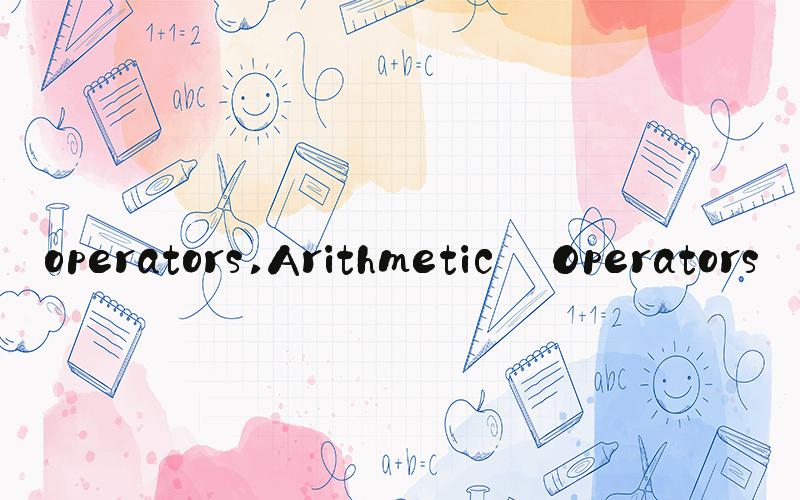
 What are Operators in Programming?
What are Operators in Programming?Operators in programming are symbols or keywords that are used to perform specific operations on data. These operators are used to manipulate data in different ways, such as performing arithmetic operations, logical comparisons, and bitwise operations. In general, programming languages support a wide range of operators to help developers write powerful and concise code. Understanding operators is an essential aspect of programming, as they form the foundation of many programming concepts.
Arithmetic OperatorsArithmetic operators are used to perform mathematical computations on numbers. These operators include addition, subtraction, multiplication, division, and modulus. The addition operator (+) is used to add two or more numbers, while the subtraction operator (-) is used to subtract two or more numbers. The multiplication operator (*) is used to multiply two or more numbers, while the division operator (/) is used to divide two or more numbers.
The modulus operator (%) is used to find the remainder of a division operation. For example, if you divide 10 by 3, the remainder would be 1. Therefore, the expression 10 % 3 would return 1. Arithmetic operators are commonly used in programming to perform calculations and manipulate data.
Logical OperatorsLogical operators are used to compare and combine boolean values. Boolean values can be either true or false, and they are often used in programming to make decisions. Logical operators include negation, conjunction, and disjunction. The negation operator (!) is used to negate a boolean value. For example, if a boolean value is true, the expression !true would evaluate to false.
The conjunction operator (&&) is used to combine two or more boolean values, and the expression evaluates to true only if all the boolean values are true. The disjunction operator (||) is used to combine two or more boolean values, and the expression evaluates to true if at least one of the boolean values is true. Logical operators are commonly used in programming to make decisions based on the values of boolean variables.
Bitwise OperatorsBitwise operators are used to perform bitwise operations on binary numbers. These operators include the bitwise AND operator (&), the bitwise OR operator (|), the bitwise XOR operator (^), the bitwise left shift operator (<<), and the bitwise right shift operator (>>). Bitwise operators are often used in low-level programming to manipulate the individual bits of a number.
For example, the bitwise AND operator can be used to set certain bits to zero, while the bitwise OR operator can be used to set certain bits to one. The bitwise left shift operator can be used to shift the bits of a number to the left by a certain number of positions, while the bitwise right shift operator can be used to shift the bits of a number to the right by a certain number of positions. Bitwise operators are a powerful tool for manipulating binary data in programming.
ConclusionOperators are a fundamental aspect of programming, as they enable developers to perform various operations on data. Understanding operators is essential for writing efficient and concise code. There are many types of operators in programming, including arithmetic operators, logical operators, and bitwise operators. Each type of operator serves a specific purpose and is essential for different programming tasks. Learning how to use operators effectively is an important step towards becoming a skilled programmer.
